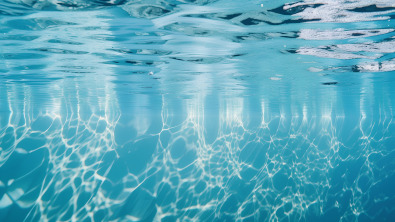The Consequences of Neglecting Your Pool's Dirty Sand Filter
November 15/2023
The Consequences of Neglecting Your Pool's Dirty Sand Filter
Introduction:
A clean and properly functioning pool filter is essential for maintaining clear and healthy pool water. Among the various types of pool filters, sand filters are widely used due to their effectiveness and ease of maintenance. However, neglecting the regular cleaning and maintenance of your pool's sand filter can lead to a range of consequences that can impact the overall quality and enjoyment of your pool. In this blog post, we will explore the potential consequences of having a dirty sand filter and emphasize the importance of proper care to keep your pool water pristine.

Reduced Filtration Efficiency:
The primary purpose of a sand filter is to trap and remove debris, dirt, and contaminants from the pool water. Over time, as the sand filter accumulates dirt and debris, its filtration efficiency decreases significantly. A dirty sand filter struggles to capture and retain particles, allowing them to circulate back into the pool. This results in cloudy water, diminished water clarity, and an increased risk of bacteria and algae growth.
Poor Water Circulation:
A clogged or dirty sand filter restricts the flow of water through the filtration system. Reduced water circulation means that the pool water is not being properly filtered, leading to stagnant areas in the pool. These stagnant areas become breeding grounds for bacteria, algae, and other microorganisms, compromising water quality and increasing the likelihood of waterborne illnesses.
Increased Chemical Consumption:
When your pool's sand filter is dirty, it requires more chemicals to maintain the desired water balance. A dirty filter is less efficient at removing impurities, requiring higher chlorine levels to combat bacteria and algae. This increased chemical demand can lead to higher costs for pool chemicals, as well as potential irritation to swimmers due to excessive chlorine levels.
Algae Growth and Green Water:
Algae thrive in pools with inadequate filtration, and a dirty sand filter provides the perfect environment for their growth. As the filter becomes clogged, it fails to remove algae spores and allows them to circulate freely in the pool water. Consequently, you may notice green water, slimy surfaces, and the need for frequent algae treatments. Dealing with persistent algae problems can be time-consuming, frustrating, and may require extensive cleaning and shock treatments to restore water clarity.
Strain on Pool Equipment:
A dirty sand filter can put additional strain on other pool equipment, such as the pump. As the filter becomes clogged, the pump has to work harder to push water through the system, leading to increased energy consumption and potential wear and tear on the equipment. This can result in higher maintenance costs and the need for premature equipment replacement.
Increased Risk to Swimmers:
Perhaps the most critical consequence of a neglected sand filter is the potential health risks it poses to swimmers. Insufficient filtration due to a dirty sand filter means that harmful bacteria, viruses, and parasites may not be effectively removed from the water. This increases the risk of waterborne illnesses, skin irritations, eye infections, and respiratory issues, particularly for individuals with compromised immune systems.
Conclusion:
Maintaining a clean and functional sand filter is crucial for the overall health, safety, and enjoyment of your pool. Neglecting its regular cleaning and maintenance can result in reduced filtration efficiency, poor water circulation, increased chemical consumption, algae growth, strain on pool equipment, and health risks for swimmers. Make it a priority to clean and backwash your sand filter according to the manufacturer's recommendations and have it inspected and serviced regularly. By doing so, you can ensure crystal clear water, a well-functioning pool system, and a safe swimming environment for everyone to enjoy.
Comments
No Comments at this time!
Go to top of page